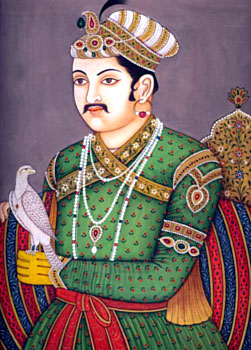
Akbar, was a really powerful king.
He had an empire that extended from the mountains of Hindu-Kush to the Bay of Bengal. As an emperor he had the sheer might to crush his opponents, to smash their kingdom into rubble. Like they do ‘a hostile’ (takeover) these days.
Akbar, however, preferred to integrate. He married into the Rajputs , his fiercest & most tenacious opponents. His favoured queen was a Rajput queen Jodhabai. He gave Rajputs a lot of respect, important jobs in the army and bestowed on them a lot of honours.
It was a wise thing to do. While Akbar was an uncontested Emperor, the Rajputs remained kings of their small kingdoms. So while Akbar had a vast empire he saved a lot of his time from martial pursuits. Instead he worked on pursuits of a different kind like ideating about a new religion.
History teaches us that takeovers in the Indian context are never clean. It is not as if somebody is selling his company, because the company will be better off with the new , ‘more competent’ buyer. Nobody sells with intent to enable ‘the company’ achieve its maximum potential.
Indians sell because they are compelled to sell. If given half a chance, they would not. They are very emotionally attached to their companies. There is nothing saintly about the selling process, no grand renunciation. It is grudgingly giving away their baby to a stranger. So even after giving away their ‘kingdom’ the ex-kings still want to remain involved, retain some rights over the ex-company.
They do not want to forget their ‘kingly’ ways in a hurry. The Tatas make sure that they don’t.
The First Few Days- Change Nothing
Sanjeev Singh is many ways an archetypical Tata manager. His father spent his life working with Tata Motors, and Sanjeev has spent all his professional life with the Tatas. In many ways, he embodies the Tata manager of the new millennium – the global, ambitious face backed by a strong value system.
Talking about the first few days after a typical take-over he says “The first thing that you do when you walk into the newly acquired company is to change nothing. The seller retains his cabin and all the frills. You do not take away the garlanded photo of the seller’s deceased father. Instead you place the photo of Mr. J.R.D Tata, alongside. It is a great honour for the seller & his family.”
It is a striking practice: subtle yet very effective. Although the seller knows that it’s no longer his company, emotionally it is not a sell-out. On the contrary, in some ways, it is a step-up. The seller’s family is an august company of the Tatas. An honour, he may have yearned for all in life. A remarkable story to boast about, to tell his grandson.
Contrast this with a hostile take-over where the first urgent task is to remove all the vestiges of the pervious owners; to completely eradicate all signs & symbols that represent the previous company. It seems that the conquest is not complete unless all efforts have been made to obliterate the historical past of the enemy, burn all enemy temples, their sacred books and behead all their gods.
Tomorrow is a new day, a new ruler, a new future. We start with a cleaned slate.
As compared to the ‘cleaned slate rule’ it is a little complex, therefore to try to be an Akbar or a Tata ; of trying to be a ruler and yet not fully usurping control, of being the conqueror and still not eradicating the enemy.
But the philosophy behind it is simple. By changing the flag, you cannot change the civilization.
Comments